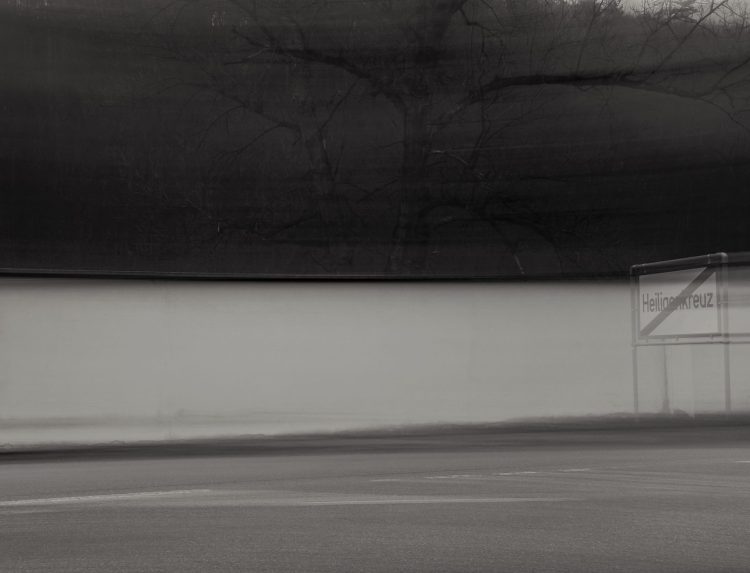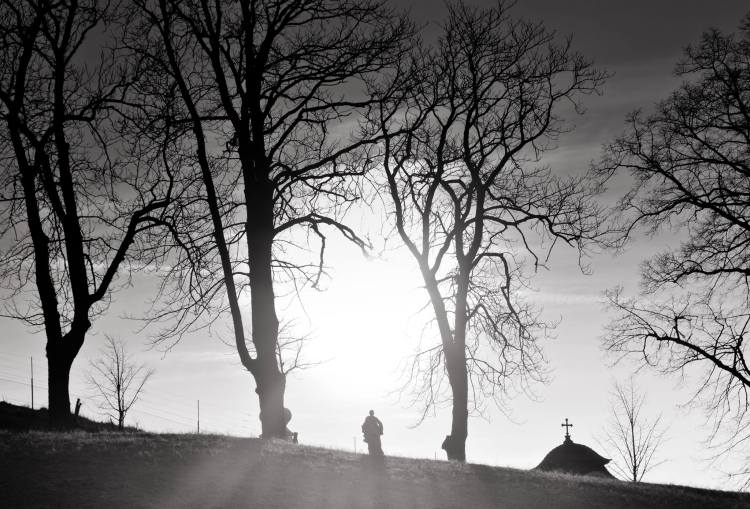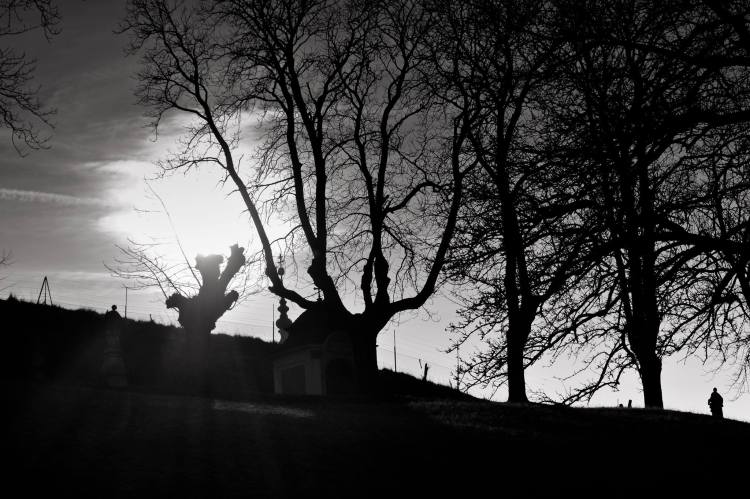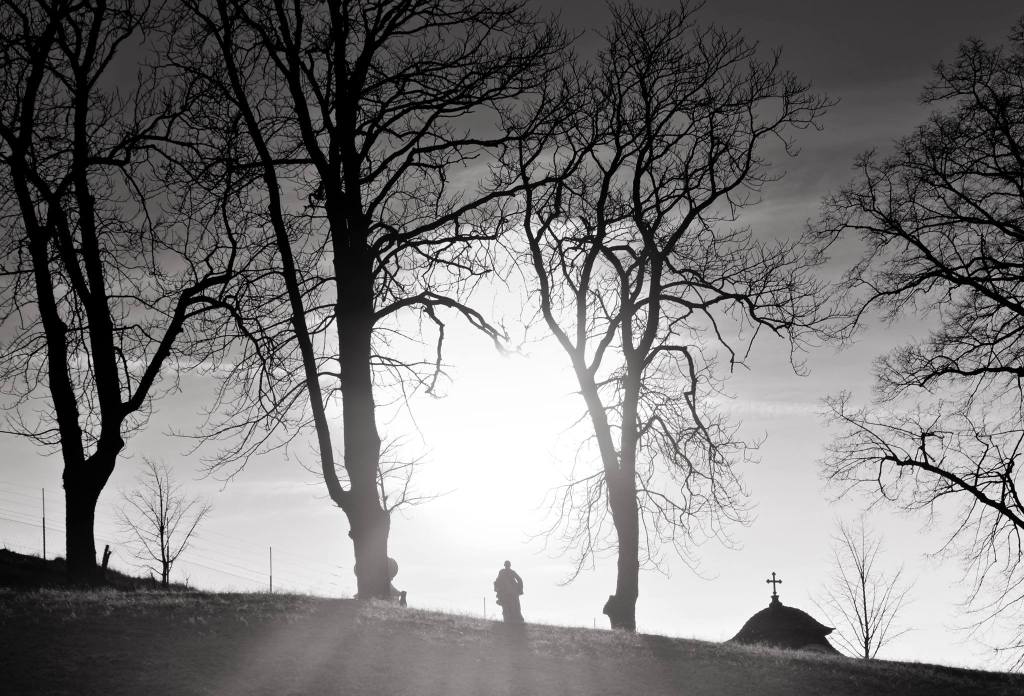If patriotism and love of liberty are beautiful things when well ordered, they are remarkably ugly when disordered. John Brungardt has asked me to respond to a particularly outrageous example of disordered love of liberty from John Zmirak. Zmirak attacks what he calls “illiberal Catholicism” — a name which he applies to (among others) Michael Baxter (for agreeing with Dorothy Day), Cardinal Dolan (for wanting universal health-care), and Thomas Pink (or those who follow him (for reading Dignitatis Humanae with a hermeneutic of continuity)). He then proceeds to call all of these good people “bleeping crazy,” (or at least to claim that calling them that would be forgivable), and to compare their political principles to those of Hitler and Stalin. He then musters all the clichés of old-fashioned anti-Catholic polemics, and says that said clichés are all justified to the extent that Catholicism does not embrace the principles of the Enlightenment. Such an embrace he sees as having been developed in the USA, brought to its apex in the Rev. John Courtney Murray, S.J., and accepted by the whole Church at Vatican II. But this acceptance he sees as being under threat from the likes of Patrick Deneen and Thaddeus Kozinski.
Zmirak is evidently what children and journalists nowadays call a “troll,” so I hesitated before agreeing to John’s request–especially since lots of other blogs have already sprung to the defense of “illiberal Catholicism” (e.g.: Rorate Caeli, Cosmos in the Lost, Opus Publicum). But then on it being pointed out to me that lots of our friends basically agree with Zmirak–even though they would not express themselves in such outrageously offensive fashion– I decided to post something after all. Zmirak refers to a group of Catholic thinkers much more worthy of being taken seriously–“men like John Courtney Murray, Michael Novak, Robert George…”–and so I will take this as an opportunity to once again address what I think is wrong with the project of “neo-conservative Catholicism,” or (to use my favorite term) “Catholic Whiggery.”

David Schindler’s Critique of Liberalism
This time I wan’t to look at a critique of Catholic Whiggery developed by a theologian who has devoted a lot of careful thought to the task, and who has entered into direct debate with the Weigel, Novak et al.– namely David Schindler. Schindler’s articles in Communio, and especially his strange and beautiful book Heart Of The World, Center Of The Church, have influenced my own thinking on these things a lot, but I have come to think on the one hand that Schindler doesn’t quite follow his insights to their logical conclusion, and on the other hand that there are certain philosophical imprecisions in his account. His unwillingness to follow all the way through seems to come from a misguided fear of integralism and an acceptance of the common misreading of Dignitatis Humanae (a misreading recently corrected by Thomas Pink). The imprecisions are a bit more complicated, and have to do with being, relation, and the good, and the order of the natural to the the supernatural. If I find anything to criticize in the nouvelle théologie it is usually due to its exponents putting their speculative seven-league boots on when baby steps would be helpful. I shall try to indicate a little that the truths Schindler is driving at can be teased out more precisely with the help of some patient Thomism-of-the-strict-observance from Ronald McArthur and Charles De Koninck.
It’s worth going back to Schindler’s essay “Is America Bourgeois?” the opening salvo, as it were, of his attack on the Catholic Whigs. I remember coming across this essay by chance one day in college, and being carried away by the power of the argument, and even by its rhetorical skill. For Schindler, though his prose sometimes reads like a too-literal translation from German, is quite a rhetorician.
Schindler was responding to an article of George Weigel’s defending American culture from the charge of being “bourgeois,” a charge implicit in a remark of Cardinal Ratzinger’s. Weigel had argued that far from being pusillanimous, selfish, and irreligious, American culture was in fact marked by generosity, devotion to the common good, and growing religiosity (this was the 1980s). Schindler responds that Ratzinger’s charge had to be understood at a much deeper level. At the level of morality American culture might indeed be marked by generosity and community, but at the level of its deepest order and “onto-logic” it is marked by an anthropological atomism. Religiosity and generosity are (in such culture) understood as matter of persons self-determination, extrinsic to their deepest being. Weigel’s very framing of the argument, Schindler argues, instantiates this problem:
[Weigel’s implicit] view that relation emerges first at the level of action and thus is most properly a matter of the self’s liberty entails a denial that relation emerges first and most properly at the level of being. But this is just to say that the self, at the level of its being, is precisely unrelated, is just so far atomic (simply an individual). In short, Weigel’s conception of the problem ipso facto instantiates—already as a matter of principle implies—the claim that the relation of others to the being of one’s self is external. (p. 272)
Such an implicit anthropology makes religion, generosity etc. a matter primarily of outward-directed achievement. A truly Catholic view on the other hand sees the persons as related to God and others in their deepest depths, and thus gives more importance to interiority and receptivity:
[The] primary and deepest activity of a human being is to receive, to bring within, which is to say to interiorize, the relation to God and to all men in God which establishes us in being. In short, Mary’s Fiat (“let it be done unto me”), understood in all of its ontological force, exemplifies the most proper activity of human being. (p. 270)
This primacy of receptivity is rooted in the fact that we are created through the Word, the Son of God, who is entirely from and toward the Father. The Christian life being like the Son:
Being a Christian means being like the Son, becoming a son; that is, not standing on one’s own and in oneself, but living completely open in the “from” and “toward”. Insofar as the Christian is a “Christian”, this is true of him. And certainly such utterances will make him realize to how small an extent he is a Christian. (Introduction to Christianity, trans. J. R. Foster, San Francisco: Ignatius Press, 2004, pp. 187. Schindler quotes part of this text at p. 268.)
Schindler then goes on to argue (quite powerfully) that American culture shows an anti-interior ontological individualism in its capitalist economic structures, its Cartesian intellectual life, and in the legalization of abortion in the name of “the right to choose.”

The Question of Religious Liberty
Schindler’s essay led to an exchange between Schindler, Weigel and others (summarized by Mark Lowery here). Weigel initially accused Schindler of wanting to go back to the “monism” of the pre-Vatican II Papal Magisterium, which Weigel takes to have been definitively rejected by the affirmation of religious liberty in Dignitatis Humanae. In a number of essays Schindler defended himself from this charge while attacking the account of religious liberty popularized by Fr. John Courtney Murray. I want to look at one of these which later formed the first chapter of Heart of the World, Center of the Church. I think Schindler’s own reading of Dignitatis Humanae is slightly wrong, but his critique of the Whig Catholic reading is brilliant and illuminating.
Murray’s theory of religious liberty, which was indeed highly influential in the drafting of Dignitatis Humanae, is one that he sees as embodied in the First Amendment to the American Constitution. Murray sees the First Amendment’s exclusion of the confessional state as fundamentally different from the laicist/anti-clerical secularism of continental Europe. For Murray the First Amendment is an article of peace; it is purely formal having no religious content, merely limiting the power of the state in such a way as to allow for the freedom of all religions. At the Council Murray argued that the Fathers should endorse religious liberty in that sense. Murray reads Dignitatis Humanae as doing just that, as affirming a purely formal, negative, “freedom from.” He considers the parts of the document that do not fit this reading to be to have been inserted for pastoral reasons, or by fathers who did not understand the main argument: “One might question […] the prominence given to man’s moral obligation to search for the truth, as somehow the ultimate foundation of the right to religious freedom.” (cited in Heart of the World, p. 61)
Schindler attacks Murray’s position here with a very MacIntyrean argument; he shows that the supposed neutrality of such a formal, negative religious liberty is not really neutral at all. In fact in conceals an ideology: liberal ideology. “The liberal appeal to religious pluralism hides its own “monism”; the liberal appeal to religious freedom hides its own definite truth about the nature of religion.” (p. 697) Schindler shows this in a number of way, I want to pick out one of them:
The simple but crucial point here is that a primitively negative relation (indifference) to God is not for all that neutral; on the contrary, it already differs from a primitively positive relation to God. A negative relation, for all of its being negative, nonetheless and for all that remains a relation which bears a definite meaning, one which excludes the priority of a positive relation. Murray’s proposal thus serves as a matter of (juridical) principle to disfavor those religions which understand the human act to be first “full” of relation to God—to be positively ordered from the beginning, in its very constitution as a creaturely act, toward God. […] The human act in its basic structure, for purposes of the constitutional ordering of society, is understood to be silent about God (cf. “articles of peace”). But this means that, when theists go on to fill this silence with speech, they must now do so precisely by way of addition and in their capacity as private members of society. Non-theists, in contrast, have merely to leave the state’s formally-conceived human act as it is, namely, in the primitive emptiness which has already been accorded official-public status. Worldviews that favor silence about God in the affairs of the earthly or temporal order therefore always retain an official-public theoretical advantage over worldviews that favor speech about God. (p. 721-722)
Schindler sees the root of this problem in the defective, atomistic view of the person implicit in liberal thought, and in an extrinsic/additive account of the order between nature and grace that follows from this. He appeals here to Henri de Lubac’s famous thesis about a false view of the nature-grace distinction leading to secularism. What does this mean for the relation of the Church and the state? Schindler quotes de Lubac:
It is from within that grace seizes nature, and, far from diminishing nature, raises it up, in order to make it serve its (grace’s) own ends. It is from within that faith transforms reason, that the Church influences the state. As the messenger of Christ, the Church is not the guardian of the state; on the contrary she ennobles the state, inspiring it to be a Christian state and thereby more human. (cited at p. 732)
In other words, Schindler argues that the form of religious liberty promoted by the Catholic Whigs leads in fact to indifferentism and secularism– the very accusations that Lefebvrites bring against Dignitatis Humanae itself–and even calls for a “Christian state.” But Schindler though is very careful to distinguish himself from “integralism” in the Lefebvrite sense:
Murrayites and Lefebvrites, however much they do so for opposite reasons, nonetheless converge in their apparent conviction that clear priority of religious truth is incompatible, or at least strongly in tension, with a principled commitment to religious liberty. In what sense is this the case? […] Let me first of all repeat what was stated earlier: Vatican Council II unequivocally affirmed religious freedom and thereby unequivocally rejected “integralism”; and the importance of Murray in these conciliar achievements is indisputable.
Schindler thinks that communio ecclesiology offers a way of escaping both liberalism and integralism, it is worth quoting from his argument at length:
If the state and the Church are to remain ever distinct as juridical entities, they nonetheless maintain this distinctness now only from within nature’s internal relation to grace […] [The] whole world [must] be inserted within the mission of Jesus Christ: that the whole world thus become a “civilization of love.” This intrinsic subordination of the world to the finality given in grace must always be maintained simultaneous with the juridical distinctness of state and Church. The former subordination without the latter distinctness entails “integralism”; the latter distinctness without the former subordination entails secularism. […] [This] dynamic for the world’s—and, in the way qualified, including also the state’s—conversion does not deny but on the contrary affirms freedom, and indeed makes it possible. The religious truth that is now given priority is the truth of communio, and thus of love. This truth is not a juridical thing which can be imposed; nor is it first a string of propositions to be believed or a moral code to be enforced. It is first the person of Jesus Christ, as revealer of the Trinitarian God. Conversion therefore must take the path of discipleship: of our own relating to Jesus Christ, and of inviting others to share in this relationship. To be sure, this relationship bears an inner movement from and toward the Church in her reality as juridical organization, as dogma, as morality. But these have their primary meaning themselves only in terms of the love revealed by the Trinitarian God in Jesus Christ. It is the way of this love precisely to be free and to make free an (Jn 8:32), and not to coerce. The way of the Church in her mission to the world can therefore never, insofar as the Church’s deepest reality remains that of communio, be to employ the mechanical-coercive methods of the state, even should she succeed in Christianizing the state’s constitutional interpreters. (pp. 737-739)
There is much to be affirmed in this of course, but I find the meaning that Schindler gives here to “integralism” questionable. He takes “integralism” to mean that that the state is subordinated to the Church without juridical distinction, but in fact authentic integralism has always been about a form of subordination that presupposes distinction. Thus the Magna Carta of integralism, Pope Boniface VIII’s Unam Sanctam is as much about the distinction of the two powers as about the subordination of the one to the other. Pope Boniface’s argument for juridical subordination is precisely the subordination of nature to the finality of grace that Schindler wants to preserve:
For, according to the Blessed Dionysius, it is a law of the divinity that the lowest things reach the highest place by intermediaries. Then, according to the order of the universe, all things are not led back to order equally and immediately, but the lowest by the intermediary, and the inferior by the superior.
Of course, Schindler’s concern with juridical subordination is really that the splendor of the Gospel will be tarnished by association with worldly power. Schindler is right to emphasize that freedom flows from love, and that the Church’s mission in the world cannot be marked by force and coercion. Nevertheless, as Thomas Pink has recently shown (see: here and here) the Church does have the authority, and at times the duty, to coerce her own children. To think that love excludes any and all uses of coercion is (to reverse a charge usually made against integralists) “immanentizing the eschaton.” “The use of the rod can actually be a service of love,” as Pope Benedict XVI said in a sermon cited by Pink, “The Church too must use the shepherd’s rod, the rod with which he protects the faith against those who falsify it, against currents which lead the flock astray.”
Dignitatis Humanae was careful not to contradict the integralist teaching of the Papal Magisterium from St Gregory VII and Boniface VIII to Leo XIII and St Pius X. It explicitly states that it is addressing the native power of the civil authority in religious matters not the power that it might have as an agent of the Church: “Therefore it leaves untouched traditional Catholic doctrine on the moral duty of men and societies toward the true religion and toward the one Church of Christ.” (Dignitatis Humanae, 1)
Pink shows that the lack of a native authority in the state to coerce in matters of religion has to do with the fact that in Christ religion orders us to an end which transcends the natural order, and end to which we are ordered by the authority of the Church, not that of the state. (And the Church claims this authority only over the baptized). Pink shows how this teaching is already present in scholastic thinkers, and how it was very highly developed by such Baroque scholastics as Francisco Suarez. And yet, he shows there is a difference between the Suarezian doctrine and the doctrine of Dignitatis Humanae.
Suarez had argued that the civil power did have authority to coerce in matters of natural religion. He thought that since man is ordered to the worship of the one God already by nature, and not only by grace, the civil authority had a native authority to forbid idolatry and such things contrary to natural religion. Dignitatis Humanae rejects this teaching, and the reason has to do with the question of the relation of nature and grace.

The Natura Pura Debate
Central to Schindler’s interpretation of Dignitatis Humanae is the account of the relation of nature and grace worked out by Cardinal de Lubac. De Lubac was certainly no integralist in the ordinary sense of the word, but he was concerned with the integration of nature and grace. (For this reason some like to call him an integralist, reserving the term “integrist,” without an a, for Marcel Lefebvre style integralism). De Lubac’s concern was with an account of the relation of nature and grace that separated them too much. A view of nature that saw it as a closed system to which grace was merely added on in a merely extrinsic way. Some of de Lubac’s critics have suggested that he was chasing after shadows, but Schindler provides some startling evidence that the problem with which de Lubac was concerned is quite real. Schindler quotes the Rev. Leon Hooper, S.J., a follower of John Courtney Murray, as follows:
[In] this world there are two sources of moral authority. Early on these were for Murray the state and the church, or, more generally, the natural law and the revealed law. Later they became civil societies and religious communities, or the secular and the sacred. Each of the two orders is differently based (in creation and redemption) and is directed toward different ends (civic friendship and eternal beatitude). Each can legitimately claim its own autonomy. (p. 730)
This is a shocking view of things indeed, according to which the natural order seems to be a system running merrily along on its own steam toward its own (earthly) end established in creation, while the the order of grace is another system, added by the redemption (!), which does not interfere with the natural order, but adds an extra other-worldly goal to human life.
De Lubac definitely saw a real problem, but I don’t think that he got every element of his account of that problem and its origins right. According to de Lubac the problem arose with the doctrine of “pure nature,” worked out in late scholasticism by the likes of Suarez, Cajetan, and Bellarmine. Pure nature refers to nature in abstraction from grace. According to Suarez et al. one can consider nature apart from grace and understand it in itself, as it would be without grace. In the actual dispensation of Providence man is ordered through grace to a supernatural end, an end which exceeds his natural powers, namely the vision of God in God’s own essence. But if one abstracts from grace, the late scholastics hold, one can see the end which is proportionate to man’s nature. Of course Suarez and Cajetan are not Hooper, they realize that in a way this end is the same as the supernatural end, namely God, but they hold that the proportionate end is God attained to by natural contemplation rather than by the beatific vision. Moreover the proportionate natural end of man is not (on de Lubac’s reading of Suarez et al.) replaced by the supernatural end, but rather the supernatural is added to the natural.
De Lubac argues that the late scholastic account of pure nature has the effect of separating nature and grace too much, of making nature a complete system in itself, thus preparing the way for secularism. But what distresses him most about the idea of pure nature is that it seems (to him) to exclude the beatific vision from being that for which man’s human heart is restless, that for which his whole being longs. When man encounters God it stirs in him a deep ‘memory,’ the anamnesis of his origin, he recognizes in God that good from which every fibre of his being comes, and he longs for him with a longing that goes to the marrow of his bones, to the depths of his soul, to the pinnacle of his mind; but (this seems to be de Lubac’s point) if that longing can already be satisfied by the attainment of God proportioned to human nature, then what need does man have of elevation through grace? Or if on the contrary that desire is really a desire that comes from grace, and leaves intact another, natural desire, then it doesn’t really comprehend the whole man.
De Lubac’s position has come under a lot of criticism recently by Thomists such as Steven Long. I think that Long et al. show convincingly that the concept of natura pura is a necessary one for understanding (among other things) the gratuity of grace. Nature is indeed intelligible even in abstraction from grace. Nevertheless, I do not think that Long has satisfactorily solved the problem as to how the natural and the supernatural end relate in the actual order of providence. De Lubac is surely right that the Suarezian position on this keeps the two ends too distinct. I think this is shown by the disagreement between Suarez and Dignitatis Humanae that I brought up in the last section. Suarez thinks that the state has right derived from natural law to regulate natural religion, that is the relation to God proceeding from natura pura, whereas Dignitatis Humanae rejects any such right, and this implies that Suarez did indeed separate the two ends too much.
Long argues that while the natural end attains to God materially, it does not attain to Him formally. That is the objects of the natural and the supernatural desire are formally distinct objects. He illustrates this with the example of seeing someone in a raincoat and desiring to meet him, not knowing that he is a great scientist:
But to desire to know God in Himself under the ratio of “cause of the world” is somewhat like the desire to know Einstein under the ratio of “man wearing a raincoat.” As “man wearing a raincoat” is an accidental denomination vis-á-vis Einstein, so to desire God as cause of the world is strictly speaking not truly to desire God, Who is infinitely more than cause of the world. (Natura Pura, p. 20)
I don’t agree with Long here. In the Q & A of a lecture of Long’s given at my alma mater someone argues (and I think convincingly) that the relevant distinction between objects of natural and of supernatural desire is not matter and form, but rather confused and distinct. That is, to desire God based on one’s natural knowledge of Him through His effects is really to desire God, in Whom those effects really participate. Here the Platonic notion of anamnesis that Ratzinger takes up (in a text very dear to David Schindler) is extremely helpful. When one comes to know God by natural reason, one “recognizes” in Him the infinite ocean of perfection in which one’s own and all created being participates. But of course this knowledge is very imperfect, confused knowledge; the light of faith gives a much more distinct knowledge of Whom it is that one desires. But of course it still does not follow (as de Lubac seemingly holds) that the natural desire is a desire for the beatific vision, because one can still distinguish between the end as the object itself desired (God), and the end as my attainment of the end. Long’s argument that by nature it is not possible to desire to attain to God by a mode that transcends nature is entirely convincing. Nevertheless, the natural desire to attain to God is really a desire to attain to God, and thus the desire given by grace really perfects, elevates, and completes that desire by revealing both more about Who God is, and by revealing an unspeakably perfect and beatifying mode of attaining to Him; it does not add another, independent desire.
Thus the natural order and the supernatural order can indeed be “integrated.” As a great late-scolastic thinker, Cornelius a Lapide, wrote, nature is for the sake of grace:
God’s creation has been ordained, as to its end, to the justification and glorification of the Saints… for the order of nature has been created and instituted for the order of grace… that is to say that this universe has been created so that the Saints delight in grace and glory…

Nature, the Angels, and the Common Good
Steven Long argues that de Lubac’s blaming of natura pura for playing into the hands of secularism by cutting nature off too much from the supernatural is really a miss-placed accusation. The real problem, and what really plays into secularist hands, Long argues, is the evacuation of nature, the loss in the account of nature of its theonomic-teleological structure. While I have argued that de Lubac is right that the Suarezian account of natura pura is defective, I do think that he exaggerates the importance of that error, and underestimates the importance of the philosophy of nature itself in coming to (or missing) a truly integral, theo-centric view of reality.
The main problem here is the view of nature formulated by Bacon, Descartes and other Enlightenment philosophers, who stripped nature of its internal ordering to God, its teleology, and its participated forms. (Br. Peter Totleben, O.P. has summarized this very well in a single blog comment).
But here too Suarez’s late scholasticism is not entirely without blame. Post-Suarezian scholasticism obviously did not accept the the full-blown Cartesian account of nature, but they moved closer to it than they ought to have. The great Thomist Charles De Koninck in his work The Cosmos has some very harsh things to say about Suarez’s corrupt late scholasticism, but he blames him not for separating nature too much from grace, but rather from separating the spiritual and the material too much in the natural order itself:
Some are reluctant to see in nature a generalized ascending movement towards forms more and more perfect from the imperfect forms. St. Thomas did not hesitate. (See in De Potentia, q.4, a. 1) The reluctance of modern Schoolmen is easily explained. Since the time of Suarez they have boxed in the universe. They want to explain everything in nature by intra-cosmic causes. Suarez by denying the demonstrative value of the arguments of St. Thomas to prove in a strictly rational way the existence of pure spirits, cut asunder every essential link between the cosmos and the created spiritual world.
The “created spiritual world” to which De Koninck here refers is the hierarchy of the angels. St Thomas does not think that the material cosmos can be understood without the agency of universal causes. This doctrine of universal agent causality is of the greatest importance for understanding the hierarchy of final causality in creation. The picture of the natural universe that one gets in St Thomas, is one suffused with meaning, and order. The whole natural order is an image of the beauty of the Creator, and this order is restored, elevated, and perfected by grace. The common good of temporal society is nothing other than a participation (a partial sharing in) that universal order. Hence the profound truth of de Lubac’s statement: “It is from within that grace seizes nature […] it is from within that […] the Church […] ennobles the state, inspiring it to be a Christian state.”
The doctrine of universal causality is of great importance for understanding St. Thomas teaching the doctrine of the common good. While the angels are universal causes in the order of agent causality, the common good is a universal cause in the order of final causality. Understanding what that really means is I think the key to deepening and clarifying Schindler’s critique of Whig Catholicism.

On the Difference Between Just Being and Being Good: Why Rights Are Not the First Principles of Political Life
Recall Schindler’s main critique of Weigel et al. He argued that the Weigel has an implicitly atomistic view of man. Relation and communion are matters of extroversion, of man going outside himself, on his own free initiative, of his achievement. Man’s dignity on this account comes from his freedom and initiative, his ability to achieve. Schindler contrasts this extroverted view of man with the Christian view of the human person, which sees the dignity of the person in her receptivity, in her interiority, which flows from her receptive relation to the Creator, which is itself caused by (and in a weak sense) reflects the receptive relation of the eternal Son to the Father.
Unfortunately Schindler sometimes (with his speculative seven-league boots on) speaks as though the root of this difference were that the extroverted view sees man as substance, whereas the interior/receptive view sees him as being “constituted by relation” in such a way as to be almost a subsistent relation. As Michael Waldstein (my father) has pointed out that can’t be quite right.
St Thomas’s teaching on the order of final causes is very helpful in understanding better the truth that Schindler is trying to get at. I have argued at length before that one of the most mis-understood principles in Thomistic philosophy is this: “The good is that which all things seek, insofar as they seek their own perfection.” What is meant by their own perfection for beings who participate being? St Thomas teaches that there is an order of senses in which this can be taken. At the summit of this order is God Himself: that perfection in which my perfection is a participation (partem-capio). Since creatures have being by participation in God their own perfection is found more in Him than in their individual substantial existence. It is thus natural for creatures to love God more than themselves. Thus when St Thomas teaches that God is the final cause of the whole universe this is not to be taken in an extrinsic way, as though things where ordered externally to God’s glory; it means that for every creature and for creation as a whole God is really their good, not their good in the sense that they can enjoy Him (only rational creatures can do that), but in the sense that their own perfection is found primarily in Him. Thus the elicited desire for God in rational creatures is founded in the natural, ontological ordering toward God of their very being. The shock of love that follows the “recognition” of God in rational creatures is first of all a love of God for His own sake although of course the desire to attain to God through contemplation follows immediately on this.
At the next level one’s own perfection is found in the common good of the whole universe, that good which most fully reflects the divine perfection. At yet another level it refers to the angels who are one’s universal causes. At another level it refers to the common good of the human species. At yet another level it refers of the common good of a “perfect” human community–that is the common good of “civil society.” As De Koninck shows at great length in his masterpiece On the Primacy of the Common Good my own perfection is found more in the common good of the city than in my individual substance. The common good of the city is more lovable than my particular good because of its place in the order final causality. (From this De Koninck immediately draws an integralist conclusion, which I shall take up below).
So on Thomas’s account one can see very clearly that from the very depths of our participated being as created things we are called to be like the Son, “not standing on one’s own and in oneself, but living completely open in the ‘from’ and ‘toward’” (to quote a Ratzinger text cited by Schindler).
In his original attack on Weigel, Schindler makes a very insightful comment on rights:
A right in and of itself is a claim I have on an other. As such a right is by definition self-directed or self-centered. Nonetheless it is often asserted that such self-centeredness is overcome when and in so far as this notion of right is universalized: when it is urged that everyone has rights. But a brief look at what is actually occurring here will reveal that such a procedure does not at all entail a transformation or reversal of self-centeredness. On the contrary the procedure merely—exactly—universalizes self-centeredness. (p. 283)
St Thomas’s teaching on the different levels of a things’s “own perfection” can help to show just how profoundly true this point of Schindler’s is. Charles De Koninck in his reply to Eschmann’s attack on the primacy of the common good states a fundamental principle philosophical anthropology and politics that follows from a things own perfection being found primarily outside itself:
Ultimately, person and society are not to be judged by what they are absolutely, but by what is their perfection, i.e. by what is their good; that is the only way in which Aristotle and St. Thomas ever discussed this problem. To look upon the absolute comparison of person and society as the most basic consideration is distinctly modern. It is also distinctly modern to accord absolute priority to the subject and to believe, with Spinoza (who, in this respect, follows in the footsteps of David of Dinant) that “to be absolutely” is “to be good absolutely”, i.e. that “ens simpliciter” is “bonum simpliciter”. […] From such a point of view, the problem of person and society quite naturally becomes the question: is the person better than society? instead of: is the proper good of the person better than his common good? When the problem itself has been so distorted, what can be expected in the solution?
Ronald McArthur, a student of De Koninck and my beau idéal of an integralist, wrote an important essay (see also a recording of an abridged version here) in which he draws out the implications of this statement of De Koninck’s with respect to the primacy of rights in modern political discourse. He unfolds the distinction to which De Koninck refers above between “to be absolutely” and “to be good absolutely.” St Thomas of course teaches that being is really convertible with goodness; to be is to be good. But in created things there is this difference: a thing is said just to be because of its substantial existence, simply because it is. How much of a thing is, or what color or shape it is, or whose brother it is, or where or when it is, are not simply speaking what make it to be rather than not be. Hence they are called “being in a certain respect,” rather than just “being” or “being simply” (ens simpliciter). But with the good exactly the reverse is true. A thing is not called “good” simply speaking just because it exists, this makes it only “good in a certain respect,” (good, one might say, “in scare quotes”) namely insofar as it is. But it is called “good simply” (bonum simpliciter) because it has attained its perfection. And it attains “its own perfection,” both by realizing that perfection as much as is possible in itself (through virtue), and by attaining to that perfection as it (more eminently) exists in its cause, by knowing and loving the cause.
The dignity of the human person does not consist in her substantial existence (just being), but in the perfection to which she is ordered (being good). Thus De Koninck can write:
God’s dignity is the only dignity which is identical to his Being, and hence infallible. Because no other agent is its own ultimate end, and because the proper end of all other beings can be ordered to a higher end, the rational creature is fallible and can lose its dignity; its dignity is not assured except insofar as it remains in the order of the whole and acts according to this order. Unlike irrational creatures, the rational creature must keep itself in the order which is established independently of itself; but to remain in this order is to submit oneself to it and allow oneself to be measured by it; dignity is thus connected to order, and to place oneself outside of it is to fail of one’s dignity.
That being so, McArthur argues, one can see how perverse the modern conception of politics is. In the modern conception man’s dignity is seen as being derived from his simple, substantial existence. “Rights” are thought to inhere in man just because of what he is. And the order of politics, far from being recognized as a participation in a higher perfection to which man is ordered, is seen as an instrumental ordered to the preservation of his rights. Thus we see the profound truth of Schindler’s statement that the universalization of rights is the universalization of self-centeredness.

The Integralist Thesis
John Zmirak (remember him?) writes:
[The] Church inherited from pagan thinkers such as Plato and Aristotle a top-down philosophy of government, which centered on the “rights” of lawgivers and rulers to enforce their vision of the Good in citizens’ lives instead of the rights of citizens against the powers of the State.”
This shows just how trapped in the modern discourse of rights Zmirak is. The philosophies of Plato and Aristotle do not “center” on rights at all; they center on the good. The fact that “liberal” philosophy does not center on the good shows how deeply illiberal “liberalism” really is–closed off to the truth that liberates.
The dignity of the common good of political life is only intelligible through its place in the order of final causes, as soon as it is removed from this order it becomes a monstrosity. To see this is to become an integralist. Charles De Koninck expresses this in a wonderful passage which has long been my favorite statement of the integralist thesis:
When those in whose charge the common good lies do not order it explicitly to God, is society not corrupted at its very root? […] Political prudence rules the common good insofar as the latter is Divine. For that reason Cajetan and John of St. Thomas held that the legal justice of the prince is more perfect than the virtue of religion. […] The ordering to the common good is so natural that a pure intellect cannot deviate from it in the pure state of nature. In fact the fallen angels, elevated to the supernatural order, did turn aside from the common good but from that common good which is the most Divine, namely supernatural beatitude, and it is only by way of consequence that they lost their natural common good. The fallen angels ignored by a practical ignorance (ignorantia electionis) the common good of grace; we, on the other hand, have come to the point of being ignorant of every common good even speculatively. The common good, and not the person and liberty, being the very principle of all law, of all rights, of all justice and of all liberty, a speculative error concerning it leads fatally to the most execrable practical consequences.
Picture Credits: Many thanks to Herr Aegidius, Can.Reg., of Stift Klosterneuburg, for permission to use his photographs to illustrate this post.


Leave a comment